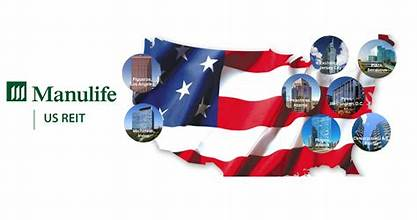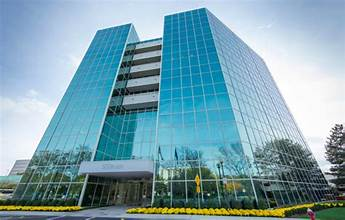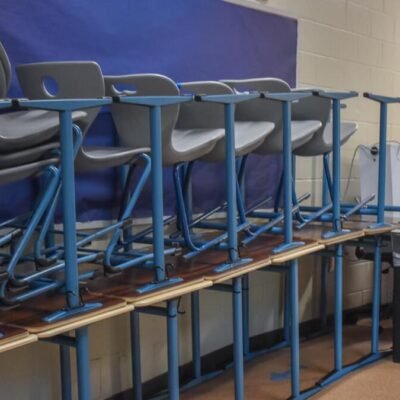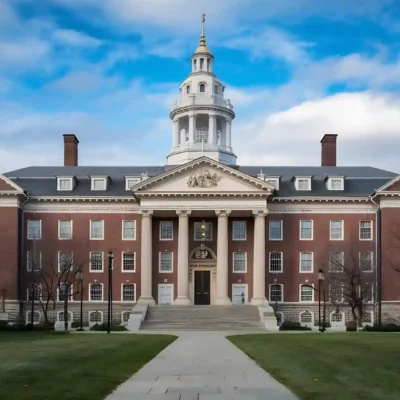In a strategic move to manage its debt burden, Manulife US Real Estate Investment Trust (REIT) has announced the sale of its Atlanta-based property, Phipps Tower, for a striking $173.55 million. This sale is part of the trust’s ongoing debt repayment plan amid rising interest rates and challenging office market conditions in the United States.
The transaction was confirmed by the trust manager on May 10, 2025, marking a major step in its efforts to restructure and stabilize its financial position.
The Details of the Deal
Phipps Tower, a premium office asset located in the Buckhead district of Atlanta, Georgia, has been one of Manulife US REIT’s key holdings. Spanning approximately 486,000 square feet, the Class A property is known for its modern amenities and high-profile tenant base. According to public filings, the sale price of $173.55 million represents a significant milestone as the trust seeks to deleverage and protect shareholder value.

The buyer’s identity remains undisclosed, but industry sources suggest that the transaction was brokered by a U.S.-based institutional investor looking to capitalize on discounted office assets in high-growth markets.
Why Manulife US REIT Made the Sale
The decision to divest came amid mounting financial pressure on Manulife US REIT, which has been hit hard by the post-pandemic shift to remote and hybrid work models. These changes have led to reduced occupancy rates across the U.S. office sector.
In 2023, the REIT reported a decline in net property income and rising costs associated with interest rates and property maintenance. The distribution per unit (DPU) also took a hit, prompting the management to explore asset disposal as a key strategy for survival and long-term restructuring.
According to the REIT manager, the net proceeds from the sale will be used to:
- Pay down outstanding debt
- Reduce gearing levels
- Improve liquidity position
- Rebuild confidence among investors
With U.S. Federal Reserve rates staying elevated, many property-focused trusts are seeing their borrowing costs climb, eroding profit margins. For Manulife US REIT, divestment was the most viable solution to meet debt covenants and avoid potential breaches.
Financial and Market Implications
Following the sale, the trust’s gearing ratio is expected to fall below 50%, aligning it more closely with regulatory guidelines. This move could stabilize its credit outlook and make future refinancing easier. The REIT’s management has also hinted at possible future asset sales if the market conditions remain volatile.

This comes at a time when U.S. commercial real estate markets, especially the office sector, are under immense scrutiny due to declining tenant demand and higher vacancy rates. However, locations like Buckhead in Atlanta remain resilient, offering opportunities for investors seeking long-term growth assets at attractive valuations.
What This Means for Shareholders
For unit holders of Manulife US REIT, this property sale could serve as a positive catalyst, despite a challenging backdrop. It indicates that management is taking active steps to protect and unlock value, rather than waiting for the market to improve.
In a recent update, the REIT said it will not declare immediate distributions from the proceeds, choosing instead to focus on strengthening its balance sheet health. This aligns with its longer-term recovery strategy and regulatory compliance.
Analyst Views and Future Outlook
Several analysts believe this sale could be a turning point for Manulife US REIT, especially if it continues to shed underperforming or non-core assets. Others remain cautious, pointing to persistent risks in the U.S. office market, including:
- Tenant downsizing
- Lease renegotiations
- Lower rental reversion rates
However, the Phipps Tower sale demonstrates that premium U.S. office assets still command strong investor interest, particularly from value-oriented and long-horizon buyers.
The next few quarters will be critical in determining how effectively Manulife US REIT can use this momentum to reduce its overall risk exposure.
Industry Perspective: Are More Sales Coming?
Manulife US REIT is not alone. Many Singapore-listed U.S. REITs have been facing similar pressures and are being forced to rethink their portfolios. According to real estate consultants, 2025 may see an uptick in asset sales as REITs seek to raise cash and adapt to shifting office space demand.
This trend is particularly prominent among REITs holding Class A and B office properties in urban and suburban U.S. locations.
For now, Manulife US REIT’s latest move appears to be well-received by the market, signaling that decisive action is still possible, even in a tough climate.
External Resource Links for Further Reading
- Manulife US REIT Official Investor Relations Page
- Bloomberg: US Office Market Outlook 2025
- The Business Times Coverage on Manulife US REIT
Final Thought:
The sale of Phipps Tower is more than just a real estate transaction—it’s a strategic pivot for Manulife US REIT as it navigates debt, disruption, and demand shifts in one of the most volatile commercial property environments in years. Whether this move marks the beginning of a broader recovery remains to be seen, but for now, it’s a clear step in the right direction.
Also Read – Inside Newtown’s $1.097M Home Sale Breaking Records






